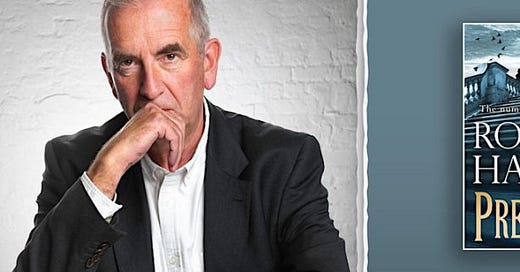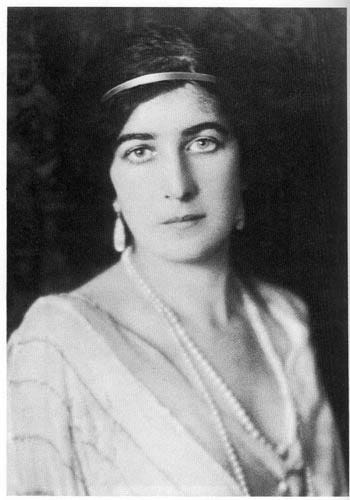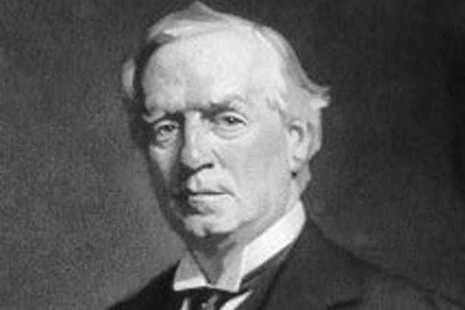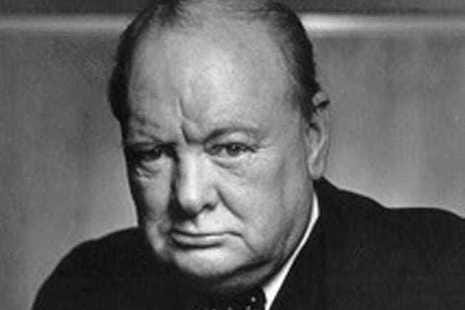WARNING: This review contains some mild spoilers for the novel under discussion.
The publication of a new novel by Robert Harris is always a big event in my world. Now that Frederick Forsyth is no longer writing fiction, Harris is probably my favorite living British fiction writer. I’ve been a fan of his since I read his first novel, Fatherland, back in 1993. Fortunately, unlike that other Harris (Thomas), he is a prolific novelist and brings out a new book every other year or so. He also seems to be getting better with time. His 2022 novel, Act of Oblivion, was, in my opinion, not just his most gripping thriller but one of the most exciting novels of the century. My second favorite among his books is 2013’s An Officer and a Spy, published a good twenty years into his fiction-writing career. Conclave, published in 2016, hasn’t gotten the attention garnered by Fatherland, Enigma, The Ghost, and other Harris bestsellers, but it is one of my favorites, perhaps because I love thrillers that deal with Vatican politics. I’m hoping that the film version, scheduled for release next month and starring Ralph Fiennes, Stanley Tucci, and John Lithgow, will finally bring to the novel the attention it has long deserved.
But today I am here to discuss Precipice, Harris’s latest novel, another historical thriller, which was published on September 17. Like much of Harris’s work, this book is based on historical fact. In this case, Harris was inspired by the romantic relationship between British Prime Minister H.H. Asquith (1852-1928) and Venetia Stanley (1887-1948, and pictured above). The pair became involved with one another in 1914, when Asquith was 62 and Stanley was 26. Asquith was twenty years into his second marriage at the time and had ten children, including a daughter who was the same age as Venetia Stanley. If you know your history, you can probably guess that 1914 was not a good year for a British PM to be distracted by anything, much less an all-consuming obsession with a much younger woman. Alas, Asquith allowed him to become so distracted by Venetia that he frequently engaged in behavior that was not just reckless but downright unlawful.
I must confess that, had the novel been written by anyone but Harris, I probably wouldn’t have been tempted to read it. My interest in the sex lives of stuffy British politicians is very low. And, having recently read John Preston’s excellent A Very English Scandal, I had pretty much gotten my fill of the subject matter. But I never pass up a new Robert Harris novel, so I ordered a copy of Precipice just as soon as it became available. (Actually, I preordered a special deluxe signed edition prepared exclusively for Waterstones, a British bookselling chain.) I suspected that Precipice might turn out to be one of Harris’s second-tier novels, like Archangel, The Fear Index, and The Second Sleep – i.e., good but not great. That would have been fine with me. A second-tier Robert Harris novel is generally better than most other writers’ first-tier works. The early parts of the novel did nothing to dispel this suspicion. They were interesting but not quite gripping. As the story begins, Archduke Franz Ferdinand of Austria-Hungary has just been assassinated by a young Serbian nationalist, setting in motion the events that will quickly lead to World War I. Asquith is Prime Minister, and his cabinet includes such powerful figures as Winston Churchill (in charge of the Admiralty), Lord Kitchener (the War Office), former Prime Minister Lloyd George (Chancellor), and Lord Grey (the Foreign Office). These men frequently clash with one another during cabinet meetings, with Churchill being probably the most pugnacious of the bunch. Again and again, they look to Asquith to settle their internal disputes. But often, Asquith spends these cabinet meetings dashing off love notes to his mistress, Venetia Stanley, and paying scant attention to the political discussions. Even when the run up to WWI is at its most volatile, Asquith frequently finds excuses to dash off to Alderly Park, the wealthy Stanley family’s country home in northwestern England (this country home is no cottage; it features sixty bedrooms) so as to spend time with a woman 36 years his junior.
Back in the early twentieth century, England had roughly a dozen mail deliveries per day. Thus the Prime Minister and his young lover often exchanged three missives per day. During Venetia’s frequent stays in London, they not only exchanged multiple short letters a day (the Edwardian era’s equivalent of the text message), they met almost daily for long chauffer-driven car rides. It is during these car rides that Asquith first demonstrates for the reader just how crazily besotted he is with Venetia. Eager to impress her, he brings along with him some incredibly sensitive war-related materials. Often these are telegrams from the frontlines of the war, telegrams containing information that would prove devastating to Britain’s military should they end up in German hands. Amazingly, after showing these top-secret materials to Venetia, the PM frequently just wads them up and tosses them out the window of the car. Sometimes, he has his driver stop at a park so that he and Venetia can go for a walk. During these walks, the PM was also prone to reading top-secret materials to his lover and then crumpling them up and tossing them aside. Eventually, several of these casually tossed off documents are discovered by random members of the public and turned over to the police. The police, fearing that some high-level government bureaucrat is leaking information to the Germans, bring the crumpled documents to the British Security Services. The Security Service fairly quickly determines that these documents had to have been discarded by a member of the Prime Minister’s cabinet. Only a small handful of men had access to all of these documents. The list includes Asquith himself, Churchill, Kitchener, and a few others. A low-level investigator named Paul Deemer is assigned to investigate the case. Fairly quickly, he determines that the documents had to have been discarded by Asquith. Nobody in the Security Services is especially eager to confront the Prime Minister with this knowledge. Charging a PM with a violation of the Official Secrets Act of 1911 is likely to get a government bureaucrat fired from his job. So Deemer is encouraged to keep quiet about his findings and keep digging. The question then becomes, who was Asquith showing these documents to as he tooled along in the backseat of his car or as he walked through some bucolic park? Deemer turns out to be a much shrewder investigator than any of his superiors could have imagined. In fact, he proves to be a bit too good at his job. After securing a position as a gardener at Alderly Park, Deemer is eventually able to sneak into Venetia’s bedroom and find a huge stash of letters that are chock full of British military secrets. Deemer finds this especially egregious because he has a brother fighting at the front. What’s more, Venetia has a lady’s maid who appears to be German (in fact, she is Swiss) and Deemer worries that she might be secretly passing top-secret information on to a German spy posted somewhere in Britain.
As the early years of the war drag on and on, Asquith (pictured above) finds himself under greater and greater pressure. His wife is aware of his infidelity and is pressuring him to break off his affair with Venetia. He has three sons who are fighting in the war. He is torn between the war hawks in his cabinet – led by Churchill – who seem to want an all-out global war between England and Germany, and the moderates, who would prefer to keep the hostilities as localized as possible. Eventually Churchill manages to persuade Asquith and the cabinet to endorse his plan of attacking the Dardanelles to take control of the straits of Gallipoli and assert Britain’s naval superiority over that of the Ottoman Empire and its German allies. This plan, as history buffs will know, goes disastrously wrong. As Harris notes, “By the time the Dardanelles campaign was abandoned as a failure in January of 1916, the total dead amounted to 110,000 – 34,000 British, 10,000 French, 10,000 Australian and New Zealand, and 56,000 Turkish; in addition, roughly a quarter of a million men were wounded or missing.”
World War I was always going to be a cataclysmically awful event but, reading Precipice, it’s hard to escape the notion that, had Britain had a PM in place who was more fully engaged in military matters and less concerned about his amorous desires, the war might not have been quite so deadly or so drawn out. It would be easy to dismiss Harris’s portrayal of Asquith as exaggerated if not for the fact that all of the many letters quoted in the novel are from the actual historical record. Asquith was so obsessed with Venetia that he tuned out his own advisers during meetings so that he could scribble love notes to her, notes in which he boasted about the fact that he was being derelict in his duties just so that he could get a letter off to her before the next post is collected.
Curiously, this is a thriller with no real villain. Kaiser Wilhelm could be considered the villain of most WWI stories, but he never appears in this tale. Virtually every character in the book is British. As bad as Asquith behaves, he almost always comes across sympathetically. He has risen to the top of Britain’s government at one of the worst moments in its history and he is clearly unsuited to the job. He seems to be clinging to Venetia as a drowning man might cling to the wreckage of his sailboat. Although his recklessness is utterly appalling, I could never make myself despise him. He just seemed sad and lost and utterly out of his league. Harris saves his most uncharitable portrait for Winston Churchill, who comes across as vainglorious, callous, reckless, and often incompetent. He also comes across as a terrible father and husband. At one point, Asquith invites Churchill and his wife Clemmie to dine with him that evening. Churchill informs Asquith that Clemmie won’t be able to join them as she had delivered another baby earlier that day, but he would be delighted to come to dinner.
Venetia, for her part, comes across much more favorably than Asquith. She is certainly more level-headed than her lover and she recognizes right away that he shouldn’t be sharing confidential information with her, and she discourages him from doing so (to no avail). At 26, she is handsome but not a raving beauty. And the fact that, despite her family’s wealth, she remains unmarried suggests that she may be getting a bit desperate for sexual attention, even if it comes from a married man more than twice her age. Eventually she realizes that the relationship must come to an end. Not wanting to be a useless rich girl all her life, she gives up the comforts of her family estate and moves to London to study nursing. She gets her training in a hospital that cares for wounded soldiers sent home from the front. She sees some ghastly things on a daily basis, but she admirably sticks to her desire to become a nurse. She is forced to live in a dormitory with other nursing students, which is fine with her. She wants no special treatment. But Asquith makes this desire difficult to attain, because he insists on showing up at the hospital frequently and inviting Venetia for long drives or long walks or long lunches. By this time she has pretty much lost her desire for Asquith, but she understands just how emotionally unstable he has become and she fears that if she formally ends their relationship, it could be disastrous for Britain and the rest of the globe. That’s how unhinged Asquith seems to her.
I had never heard of Venetia Stanley before reading Precipice, and I knew almost nothing about Asquith other than his name. I couldn’t imagine that some long-forgotten romance from British history could possibly make for a gripping historical thriller but, sure enough, Harris managed to pull it off. The character of Deemer is, I assume, fictional. The Asquith-Stanley letters didn’t come to light until after Venetia Stanley’s death in 1948. Whether the British Security Services were aware of just how incredibly reckless Asquith was with British military secrets, I do not know. But Harris certainly makes it seem plausible that lower-level figures in the British government were aware of the danger that the Asquith-Stanley affair posed to the country and were working overtime to try to assess the potential damage and keep it from occurring. Deemer is an interesting character and nearly as well drawn as Asquith and Venetia, despite being wholly invented.
Precipice isn’t quite as thrilling as either Act of Oblivion or An Officer and A Spy, but it comes close. The novel ends somewhat abruptly, but that is because Harris is somewhat constrained by the historical record. The real-life story ended with more of a whimper than a bang, and so, alas, must Precipice. But its 445 pages flew by and I never found my interest flagging.
Curiously, the novel still seems incredibly relevant. Many times, Asquith’s reckless behavior with Venetia reminded me of Bill Clinton’s reckless behavior with Monica Lewinsky. Likewise, Asquith’s careless attitude with state secrets reminded me of both Hillary Clinton’s email scandal (which turned out to be overblown) and Donald Trump’s handling of classified materials (whose ultimate seriousness hasn’t yet been fully adjudicated). Even the multiple daily missives exchanged between Asquith and Venetia seemed like precursors of today’s instant communications – emails, texts, etc. This is a story set more than a century ago but at times it felt like it was torn from today’s headlines. I highly recommend it.







I have just finished 'Precipice', and enjoyed most of. WhileI understand it's fiction, and stretched to that limit here and there, I was surprised and disappointed by one aspect of the historical thread. While Haris mentions the involvement of Commonwealth Australian & New Zealand troops a number of times in regards to the Dardanelles, Harris always refers to British troops as one unit, even though Canada supplied 650,000 soldiers, beginning in 1914-15 with the 30,000 Canadian Expeditionary Force sent to France. Both my ancestral lines here in Canada are British. Harris's flagrant disregard for historical facts regarding Canada's contribution grates on Canadians in what we see as a perpetual mindset of empire and colony that persists to this day.
Thanks for this excellent review, Kevin. I think of myself as an avid and promiscuous reader, but then I learn to my chagrin that I've never read this most celebrated author, nor your other favorite, Freddie Forsyth. This is what reviews are for, I suppose: not just providing readers with consumer advice but helping them see gaps that might pleasurably be filled. Incidentally, I'm glad you came through your recent home-invasion scare unscathed.